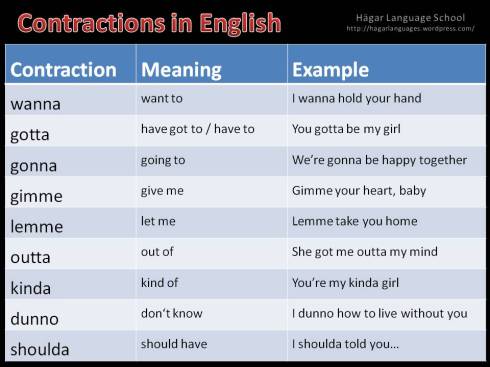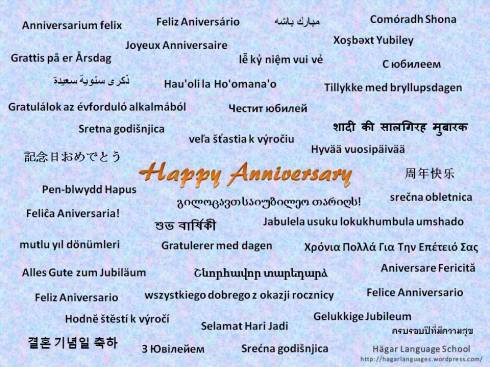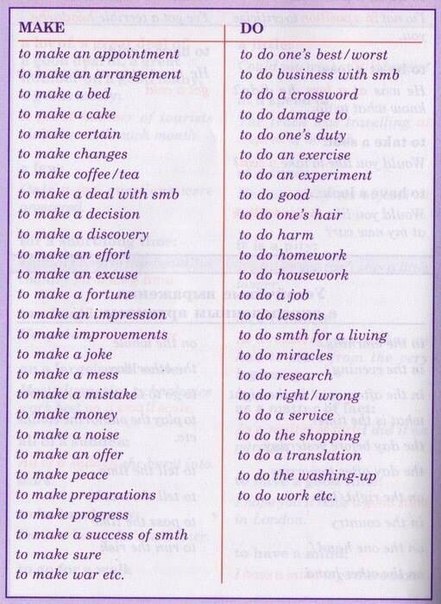
Today’s expression: “to iron out problems”
29 SepWe all need a friend like this sometimes:

Normally this expression is used for the small problems in life. But of course if a mafia boss asks someone to “iron out” a problem, it can have a very different meaning…
Today’s expression: “When you’re in a hole, stop digging.”
19 OctWe all say embarrassing things sometimes. Things that make us look stupid. Things that show some strange opinions. But when you notice that you’re wrong, it’s a good idea to stop talking. Unfortunately some people never notice it, and they continue saying more and more stupid things.
When you’ve said something embarrassing or stupid, we say that you have “dug a hole for yourself”, and you are now in this hole. If you continue to talk, it is like digging even deeper. It becomes more and more difficult to come out of the hole.
Now I’m sure you understand the meaning of this advice: “When you’re in a hole, stop digging”.

Today’s expression: “Cost the earth”
22 AprToday is Earth Day, so it’s time for an expression with “earth”.
We all know that the earth is very precious. So when we have bought something very expensive, we can say that “it cost the earth”. For example:
Mary: “Wow, your new ring is really stunning!”
Susan: “Of course, it cost the earth!”
In this picture, though, the demonstrators have a more direct, literal meaning in mind. They are using this idiomatic expression, to say that we are destroying the earth in order to create energy:

Today’s idiom: “Easter Egg”
17 AprYes, you read that correctly, an “Easter Egg” can be an idiom.
As an idiom, an “Easter Egg” is a secret message, or a surprise, hidden in a computer system or in a work of art.
You’ve probably seen some of the jokes in the Google search engine. For example, if you search for “askew”, Google shows the result on a page that is actually askew, i.e. tilted, as in this picture:

There are also hidden messages in some famous works of art. This article shows some of the secret and cheeky messages that Michelangelo painted into his scenes in the Sistine Chapel: http://www.cracked.com/article_18386_7-mind-blowing-easter-eggs-hidden-in-famous-works-art.html .
Today’s idiom: “To Play Your Trump Card”
4 FebNo, this idiom does not mean that you are friends with an idiot in the White House.

In many card games, a TRUMP card is more powerful than the other cards. When you play this card, it beats the other cards.
So, the idiom “to play your trump card”, means that you are using an advantage that will help you to succeed in a situation.
Example: “In his job interview at Hitachi, he played his trump card when he answered a question in Japanese.”
“Go” and its prepositions and articles
29 DecTo say that you’re going somewhere can be complicated in English. For example, we say: “go home” (no prepositions and articles), but “go to school” (preposition but no article), or “go to the supermarket” (preposition and article).
This chart shows typical examples of using GO correctly:
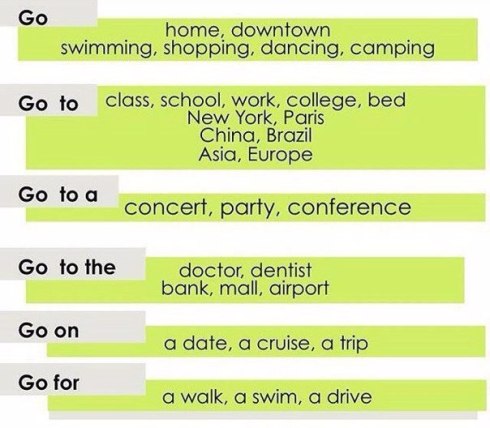
Today’s expression: “so hungry I could eat a horse”
28 AugWhen you’re really, really hungry, the most common way to express it is by saying “I’m so hungry I could eat a horse”.
If you know a similar expression in another language, which animal is used there?

Today’s idiom: “To sweep someone off his/her feet”
6 AugTo sweep someone off their feet has nothing to do with using a broom. Although, if you get in the way of someone sweeping the floor, this may happen quite literally!
We use the verb “sweep” not only for cleaning, but also for big, fast movements. So “to sweep someone off their feet” means to make someone fall very much in love with you, usually quite suddenly, and usually with some romantic actions.
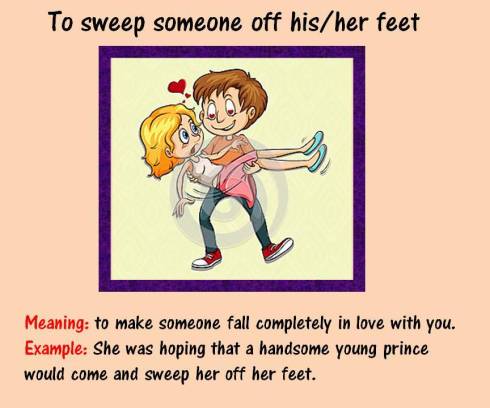
Today’s idiom: “Knight in Shining Armour”
10 JulA “knight in shining armour” is someone who rescues you from a difficult situation. It is used mostly in a romantic context, for example “She’s waiting for a knight in shining armour to rescue her from her boring and lonely life”. However, it can be used in any situation where someone is hoping for a rescuer to come along. For example, “Our business is in big trouble. We really need a knight in shining armour to come and invest a few million dollars in us.”
FOR, SINCE or DURING?
4 JunWhen talking about time, we often want to say WHEN something started, HOW LONG it lasted, or what else is happening AT THE SAME TIME. To express these concepts, we use the prepositions SINCE, FOR and DURING. But how do we use them correctly? This chart should help:

Compound Adjectives
29 JanToday someone asked me about a compound adjective, so I thought I’d share this picture with you:

Today’s expressions: “not lose sleep over something”
12 FebWhen you worry about something, you probably can’t sleep well. And when you don’t have any worries, you probably sleep very well. So the expression “I won’t lose sleep over it” means quite simply that I’m not going to worry about a situation, or that I really don’t care.
For example:
“I failed my driving test, but I’m not going to lose any sleep over it”.



